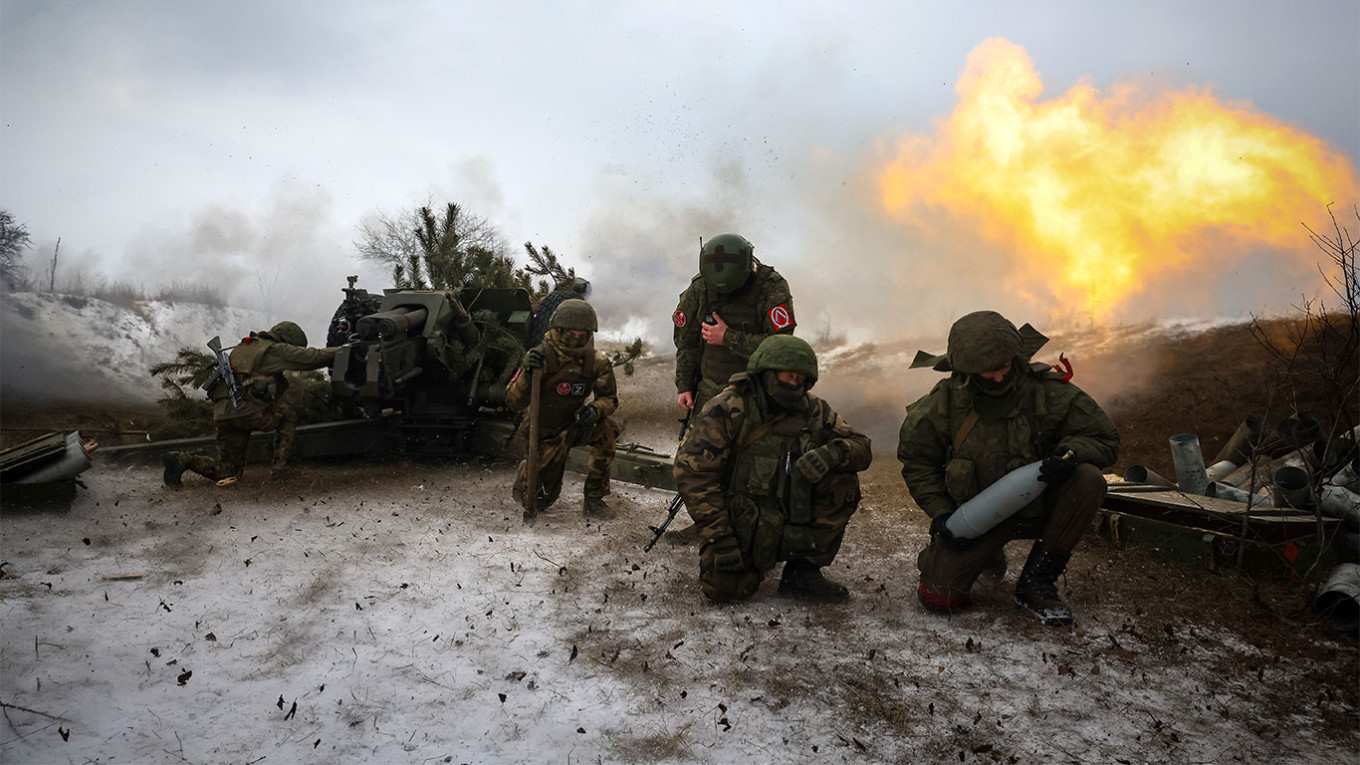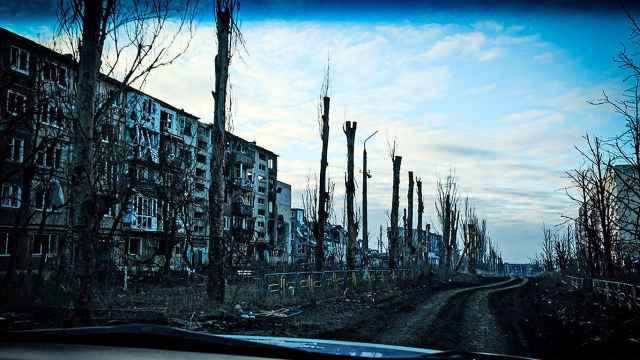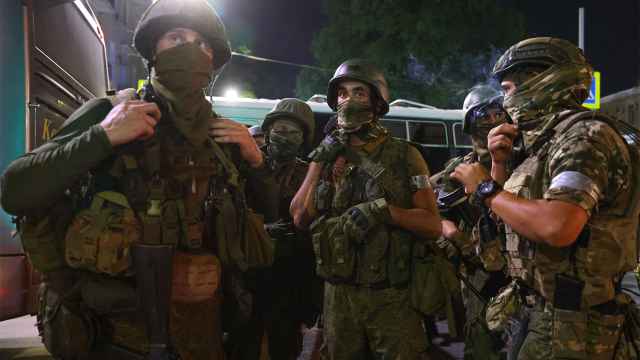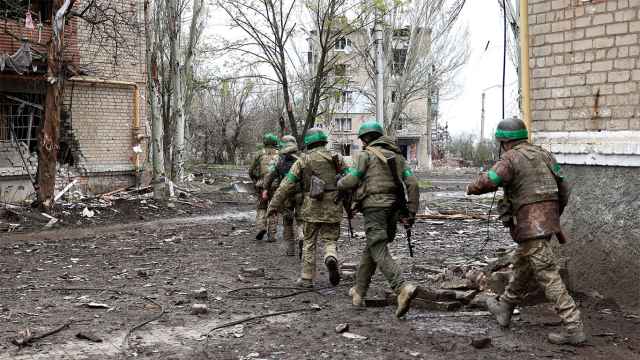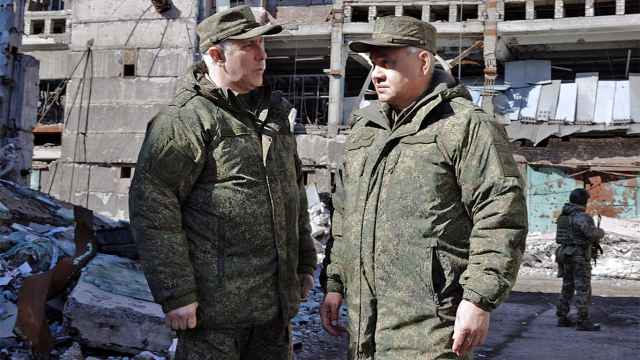Dozens of damaged military vehicles with Russian markings could be seen scattered chaotically across a snow-covered field in footage released last week of a battlefield near the eastern Ukrainian mining town of Vuhledar, southwest of the Russian-held city of Donetsk.
The hulls of some of the armored vehicles were covered in black soot from what appeared to be recent fires. Lying nearby were tank turrets and other parts from combat vehicles that had been dismembered by explosions.
Next to the burned-out vehicles, the drone footage clearly showed the dead bodies of what appeared to be Russian soldiers.
The intense fighting around Vuhledar is likely to have been one of the opening engagements of a major Russian offensive in Ukraine, analysts told The Moscow Times on Tuesday, as the Kremlin apparently gears up for a renewed attempt to seize large areas of Ukrainian territory.
The escalating military confrontation looks set to cause a major rise in casualties, heralding a new, bloody stage in the war as it enters its second year.
Russia’s losses — and failure to advance — in Vuhledar suggest they may not have much success.
"We are waiting for an expected offensive in the Kreminna-Svatove area that will likely be spearheaded by the 76th Air Assault Division,” Rob Lee, a fellow at the Foreign Policy Research Institute, told The Moscow Times, referring to one of Russia’s elite paratrooper units.
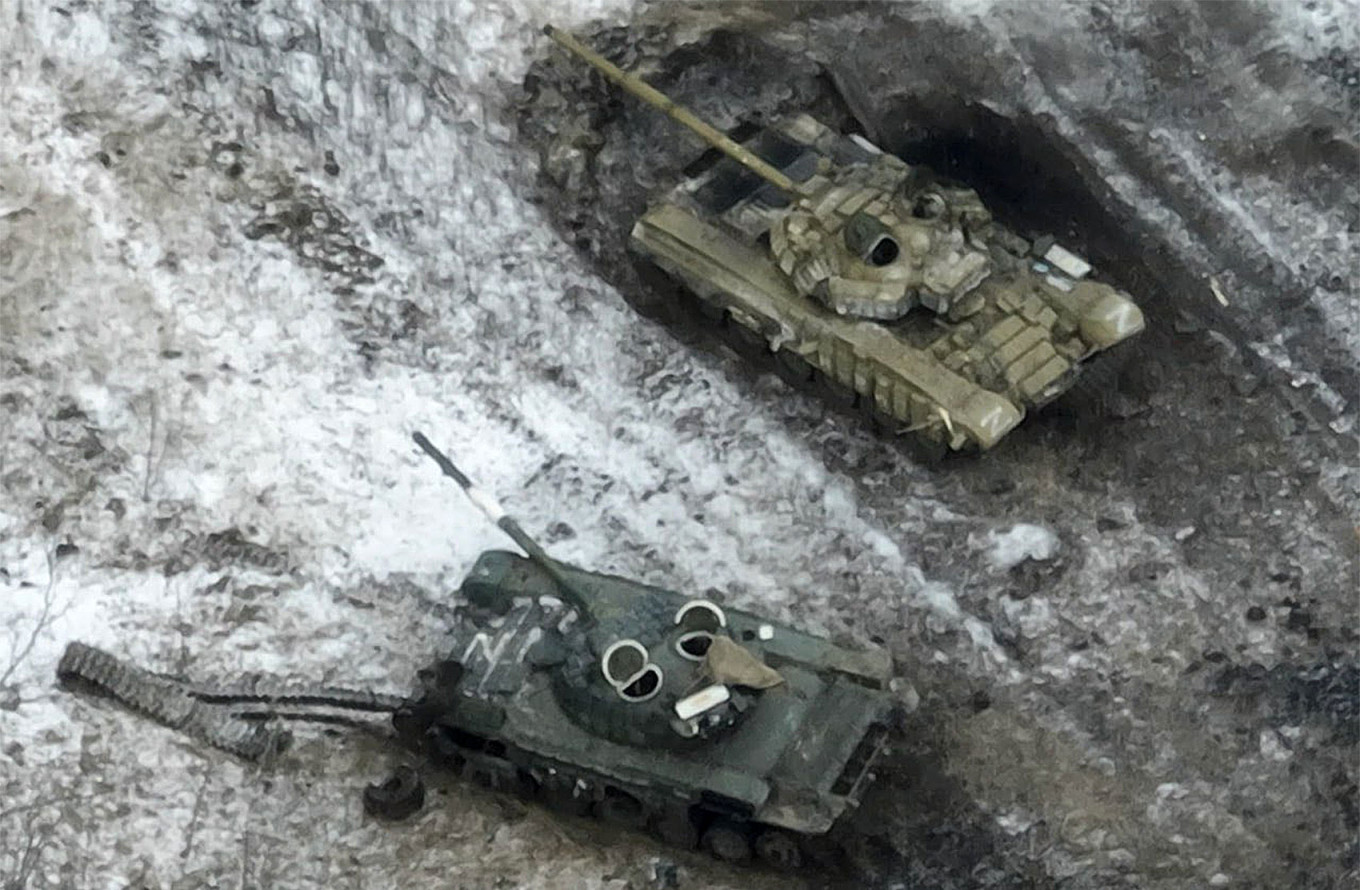
“They may have more success [than in Vuhledar], but it is unlikely they will be able to achieve a true breakthrough and seize much territory."
If the fighting in Vuhledar is anything to go by, the Ukrainians will be able to put up a stiff defense against Russian attacks — and possibly inflict major losses.
The Ukrainian Armed Forces last week destroyed what appeared to be a Russian convoy near Vuhledar consisting of troops from the 55th Guards Naval Infantry Brigade and the 40th Naval Infantry Brigade, disabling more than 30 tanks and infantry fighting vehicles, according to Lee.
A surviving 55th Guards Naval Infantry Brigade marine who spoke with Russia’s 7x7 regional news site Monday said losses were so severe that only eight men remained in one of the unit’s companies (at full strength, each company has about 100 men).
“I wish I had been taken prisoner and never returned,” he said, according to 7x7.
Due to a lack of demining equipment, Russian commanders in Vuhledar reportedly ordered their tank units to attack Ukrainian positions in a single line, making them an easy target.
The Russian military’s tactics around Vuhledar have been bitterly criticized by several influential Russian military bloggers, including the Grey Zone Telegram channel, believed to be affiliated with mercenary group Wagner, and Igor Girkin, a retired Russian special ops officer who is a vocal critic of the Russian war effort.
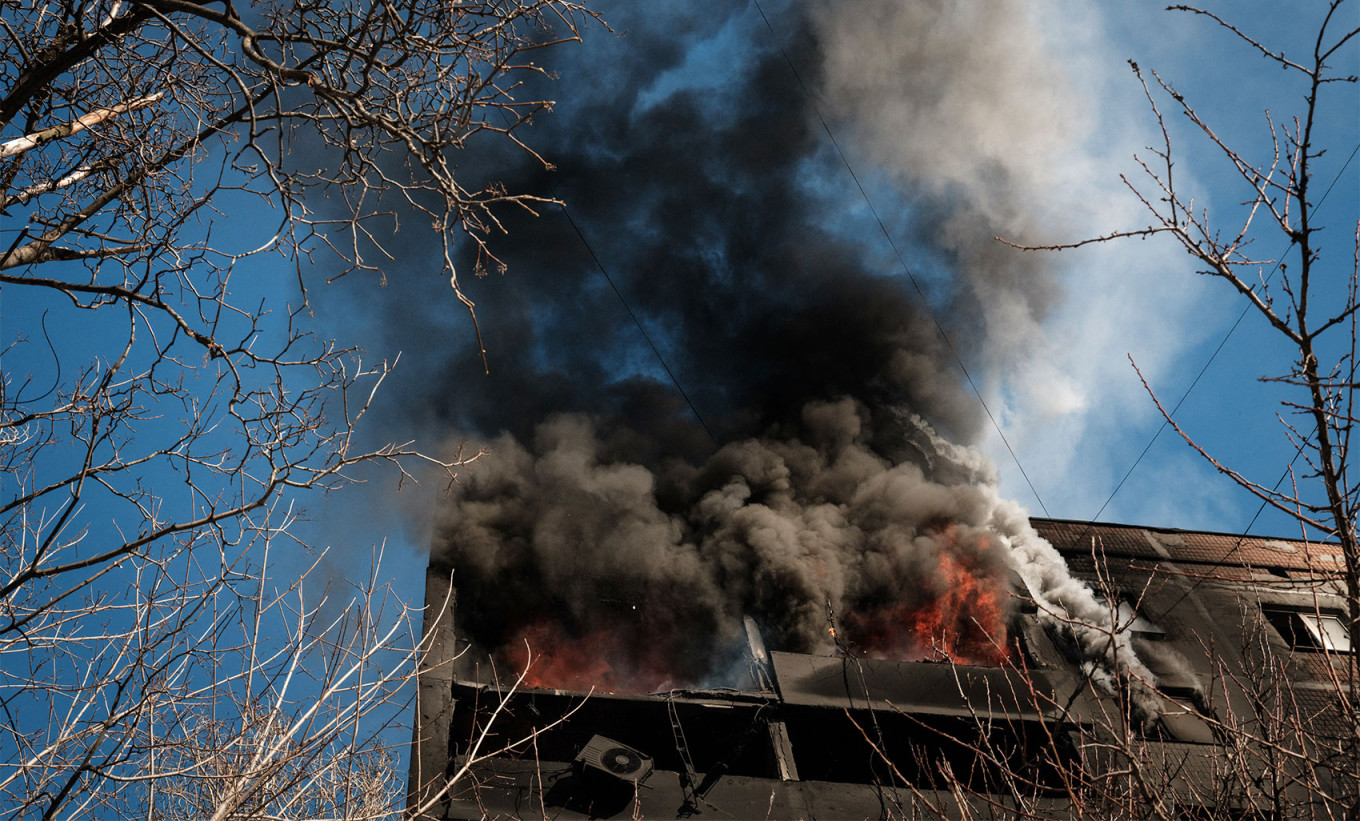
Just 150 kilometers away from Vuhledar, Russian soldiers, including Wagner mercenaries, have also been stepping up their attacks on the city of Bakhmut — where fierce fighting has been ongoing for months.
"The Russians are advancing several times a day, one after the other. Ours shoot at them — they walk into the bullets and fall to the ground,” Ukrainian volunteer Viktoria Khamaza said last week of the fighting in Bakhmut to Ukrainian media outlet Zerkalo.
“More Russian soldiers come after them, they just follow the corpses!”
Kremlin-linked businessman Yevgeny Prigozhin, the head of Wagner, said over the weekend that his troops had seized the village of Krasna Hora to the north of Bakhmut, which, if true, would threaten Ukrainian supply lines into the contested city.
While Russia does not provide official casualty figures, there is some evidence that Russia has been suffering rising casualties in recent weeks — including Ukrainian claims of record Russian deaths as well as figures from independent Russian journalists tracking Russia’s human losses in the fighting.
The desire of Russia's political leadership to launch a significant attack is limited by the capabilities of the Russian Armed Forces and a lack of weapons and equipment, Israeli military expert David Gendelman told the Moscow Times.
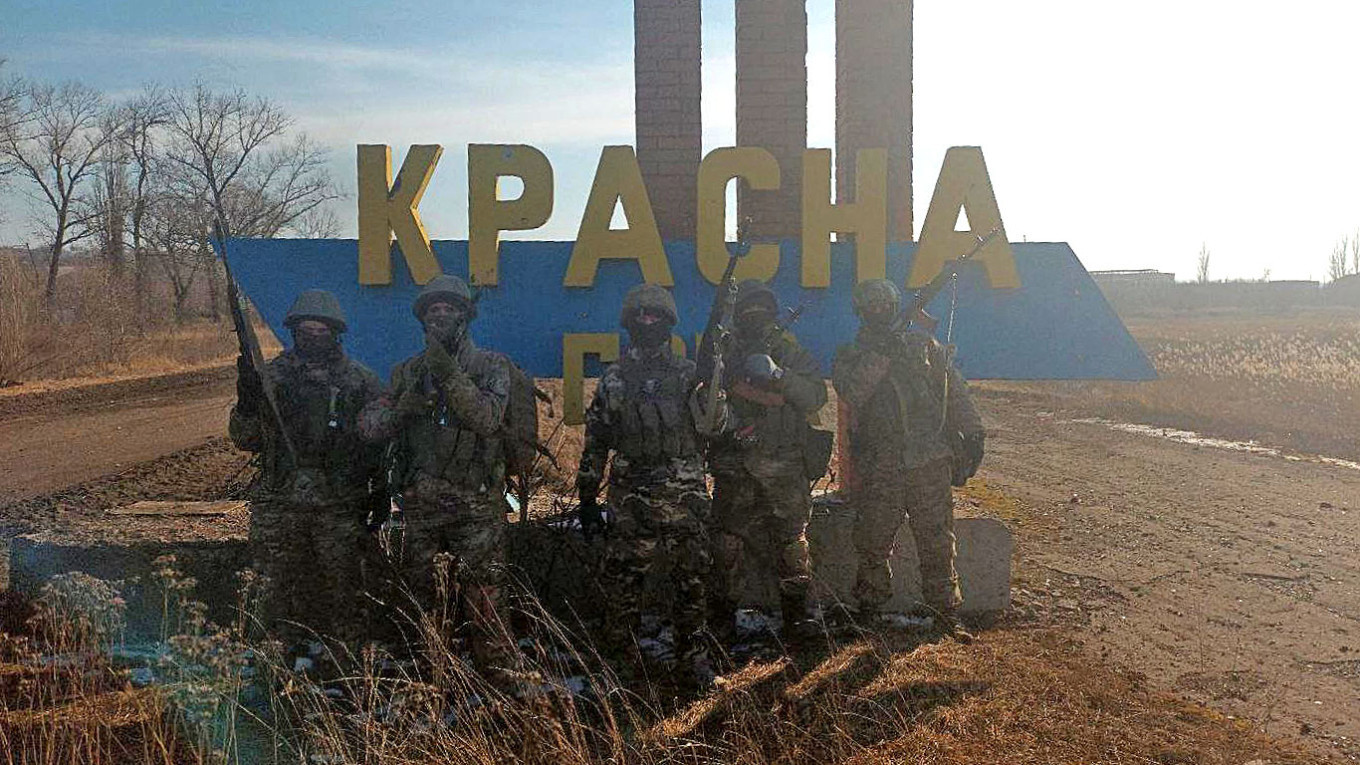
"The Russian leadership faces a choice: either continue the slow gnawing in the Donbas… and increase the pressure along the entire Donbas front. Or to opt for a new major offensive from the north or from the south, which in the current circumstances would border on the adventurous," Gendelman said.
The expert added that the Kremlin’s decision would be reflected on the ground in the coming days.
Western politicians, military leaders and experts have been warning since late last year that the Kremlin is likely building up its forces to mount a new offensive.
What is happening now shows that a major Russian attack is already underway, NATO Secretary General Jens Stoltenberg said Monday.
The likely goal of Russia’s military command is to regain the initiative it lost back in the summer, when Ukraine reclaimed swathes of territory in a successful counteroffensive, Bloomberg reported last month, citing sources. Experts at the U.S. Institute for the Study of War (ISW) expressed the same opinion in January.
Meanwhile, in contrast, the Kremlin continues to accuse Kyiv of amassing its own forces to launch an attack on Russian-held territory.
Some observers assess that President Vladimir Putin believes he can win thanks to the numerical superiority of his army, which has been replenished by hundreds of thousands of men called up in Russia’s “partial” mobilization last year.
Ukraine’s Zaporizhzhia and Kharkiv regions have also been mentioned as possible targets for a large-scale offensive by Russian forces in addition to the Donetsk and Luhansk regions.
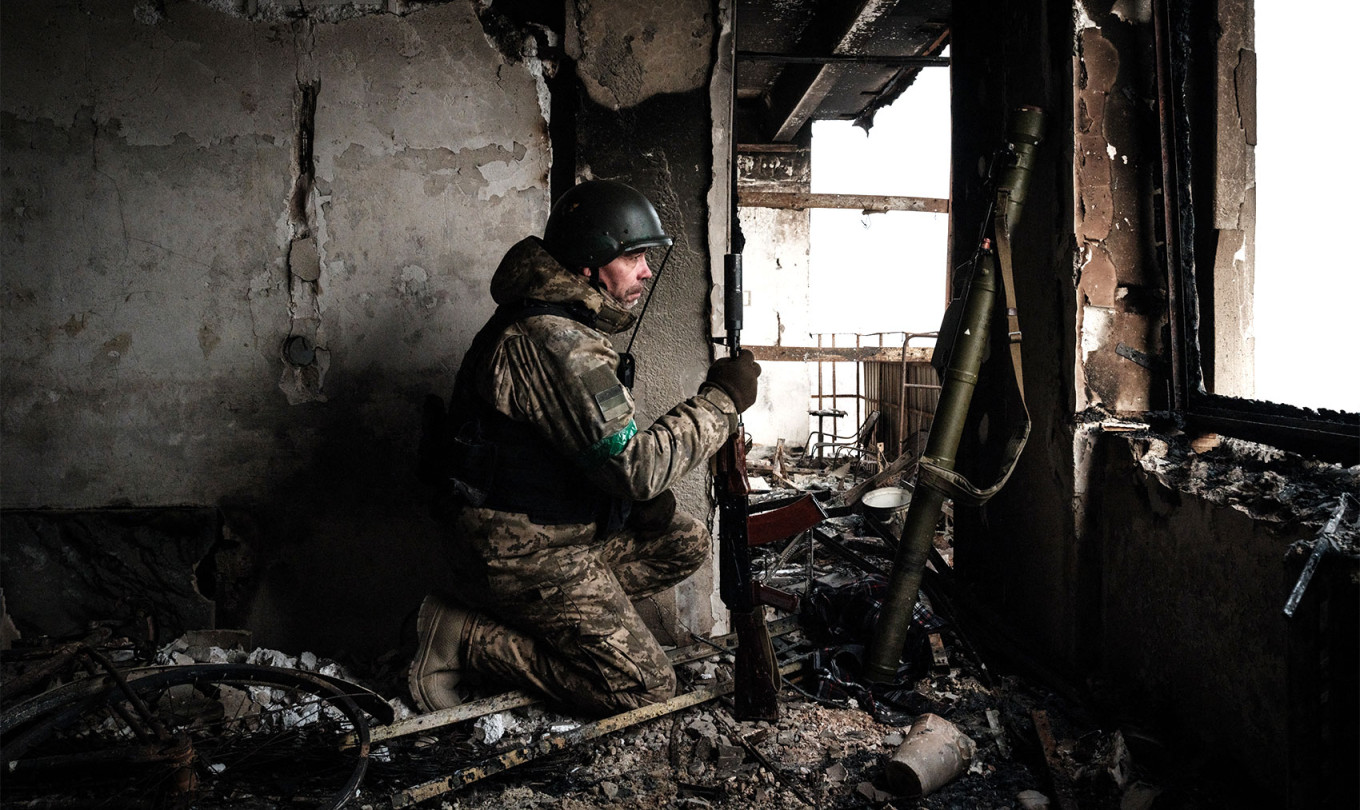
Major problems facing the Kremlin, however, are minimal training provided to newly mobilized recruits and losses of sophisticated military equipment.
Since the start of the invasion, Ukraine has destroyed or captured at least 1,727 Russian tanks, according to Dutch group Oryx, which uses open-source data to track Russia’s materiel losses.
Without sufficient tanks and armored fighting vehicles, Russia will struggle to carry out large-scale offensive maneuvers, according to ISW experts.
While Russia may be planning to try and launch a new offensive on the Ukrainian capital Kyiv, it is likely to fail given its poorly-trained troops, according to analyst Lee.
And if Russia loses significant amounts of men and materiel — like in Vuhledar — it will become vulnerable to a Ukrainian offensive later in the spring, he said, especially as Kyiv continues to receive advanced weaponry from its Western allies.
“The question is whether Russia has sufficient offensive capability to seize much territory,” said Lee.
“Russia has mobilized a large number of soldiers and likely has a manpower advantage, but these are not necessarily well-trained or motivated units. Poorly trained soldiers are more useful in defense than offense.”
A Message from The Moscow Times:
Dear readers,
We are facing unprecedented challenges. Russia's Prosecutor General's Office has designated The Moscow Times as an "undesirable" organization, criminalizing our work and putting our staff at risk of prosecution. This follows our earlier unjust labeling as a "foreign agent."
These actions are direct attempts to silence independent journalism in Russia. The authorities claim our work "discredits the decisions of the Russian leadership." We see things differently: we strive to provide accurate, unbiased reporting on Russia.
We, the journalists of The Moscow Times, refuse to be silenced. But to continue our work, we need your help.
Your support, no matter how small, makes a world of difference. If you can, please support us monthly starting from just $2. It's quick to set up, and every contribution makes a significant impact.
By supporting The Moscow Times, you're defending open, independent journalism in the face of repression. Thank you for standing with us.
Remind me later.



